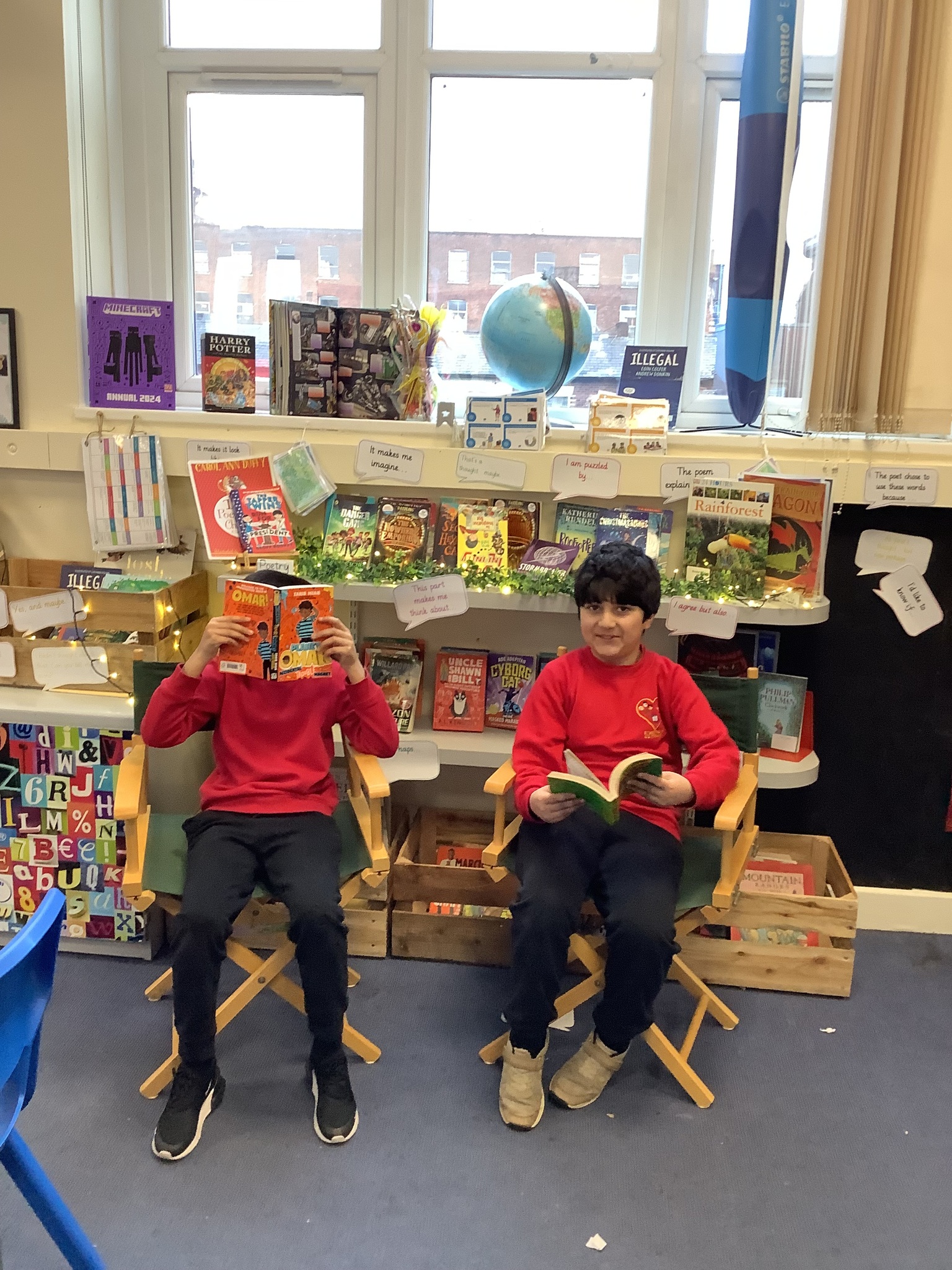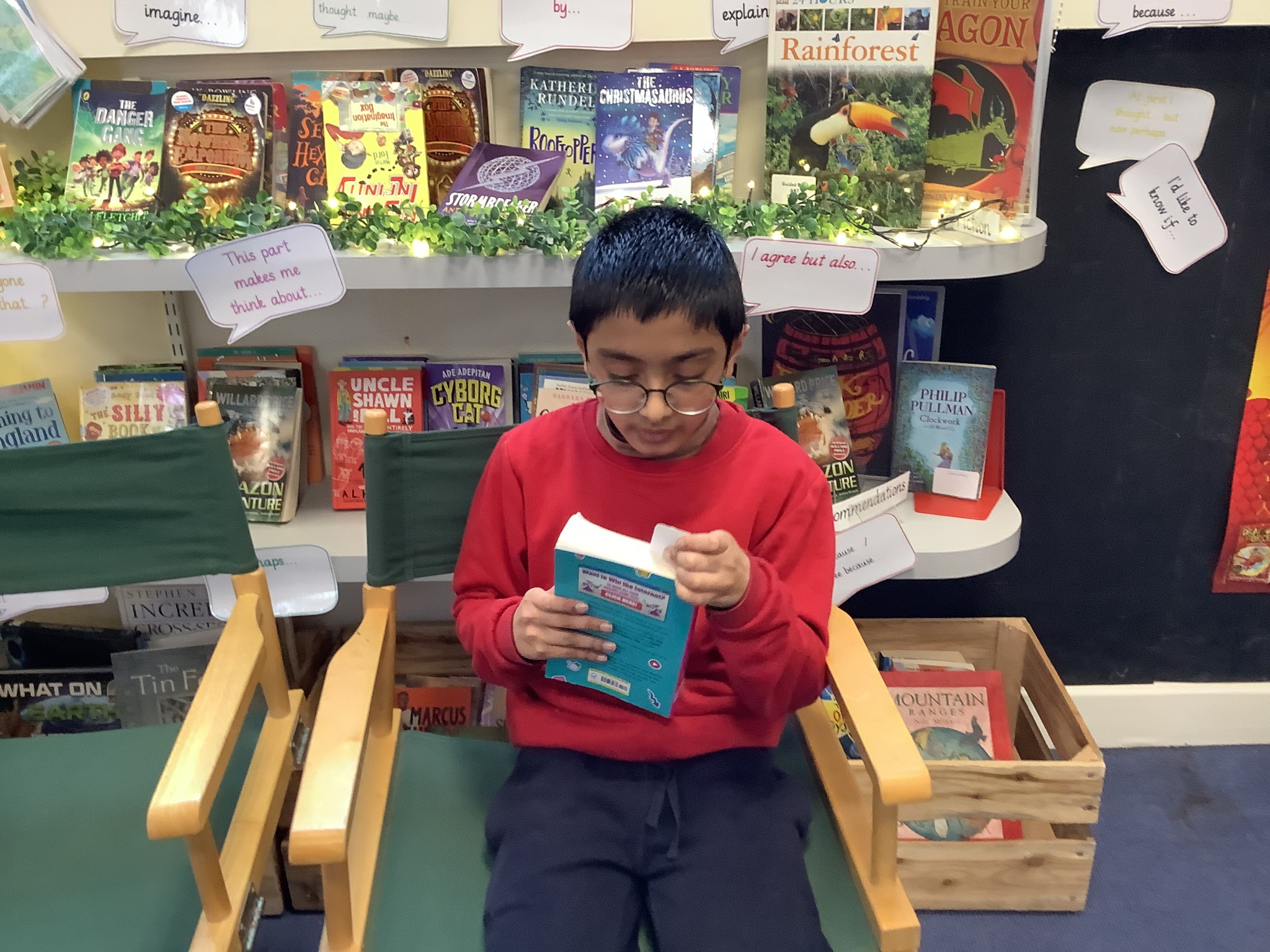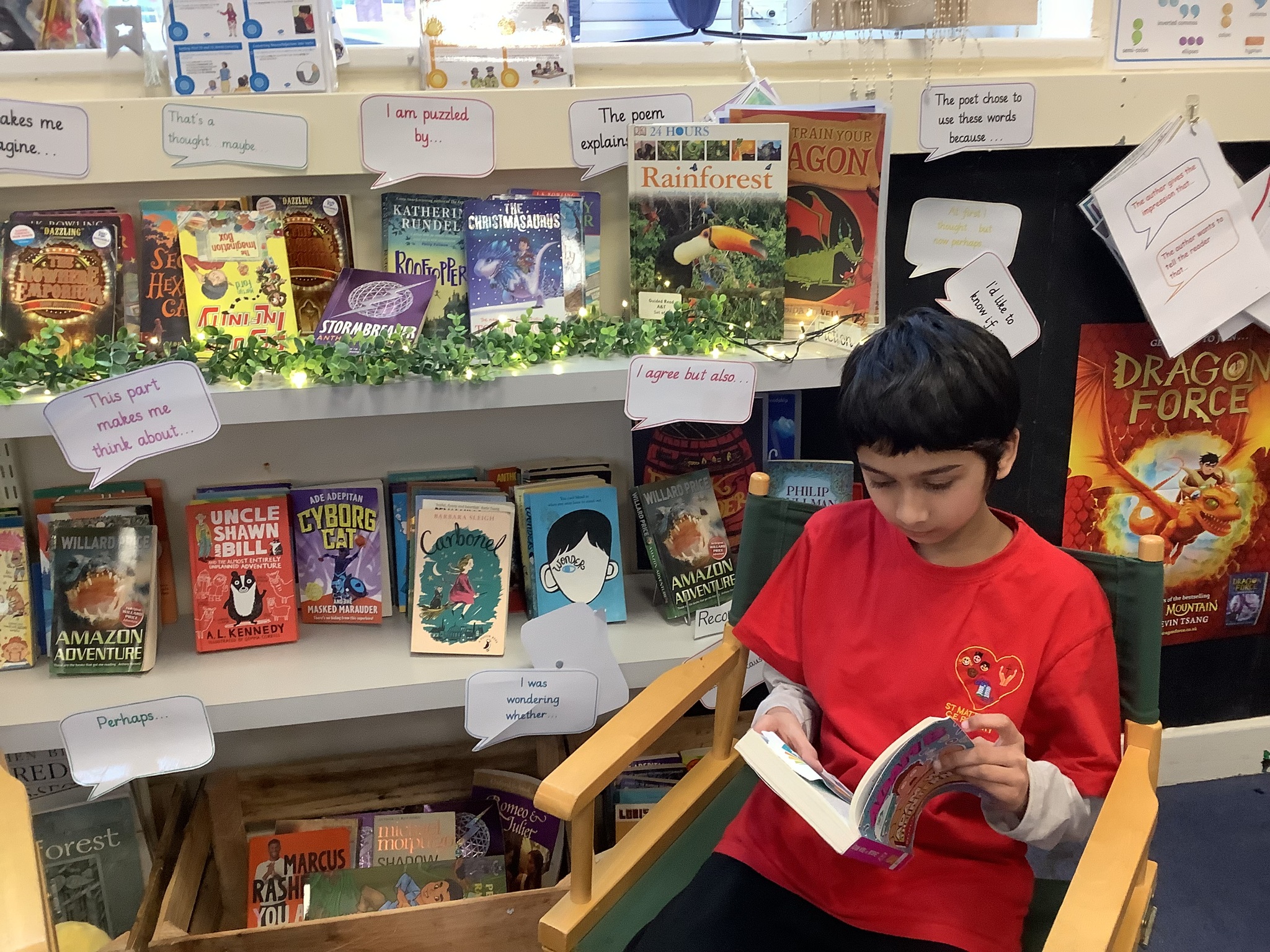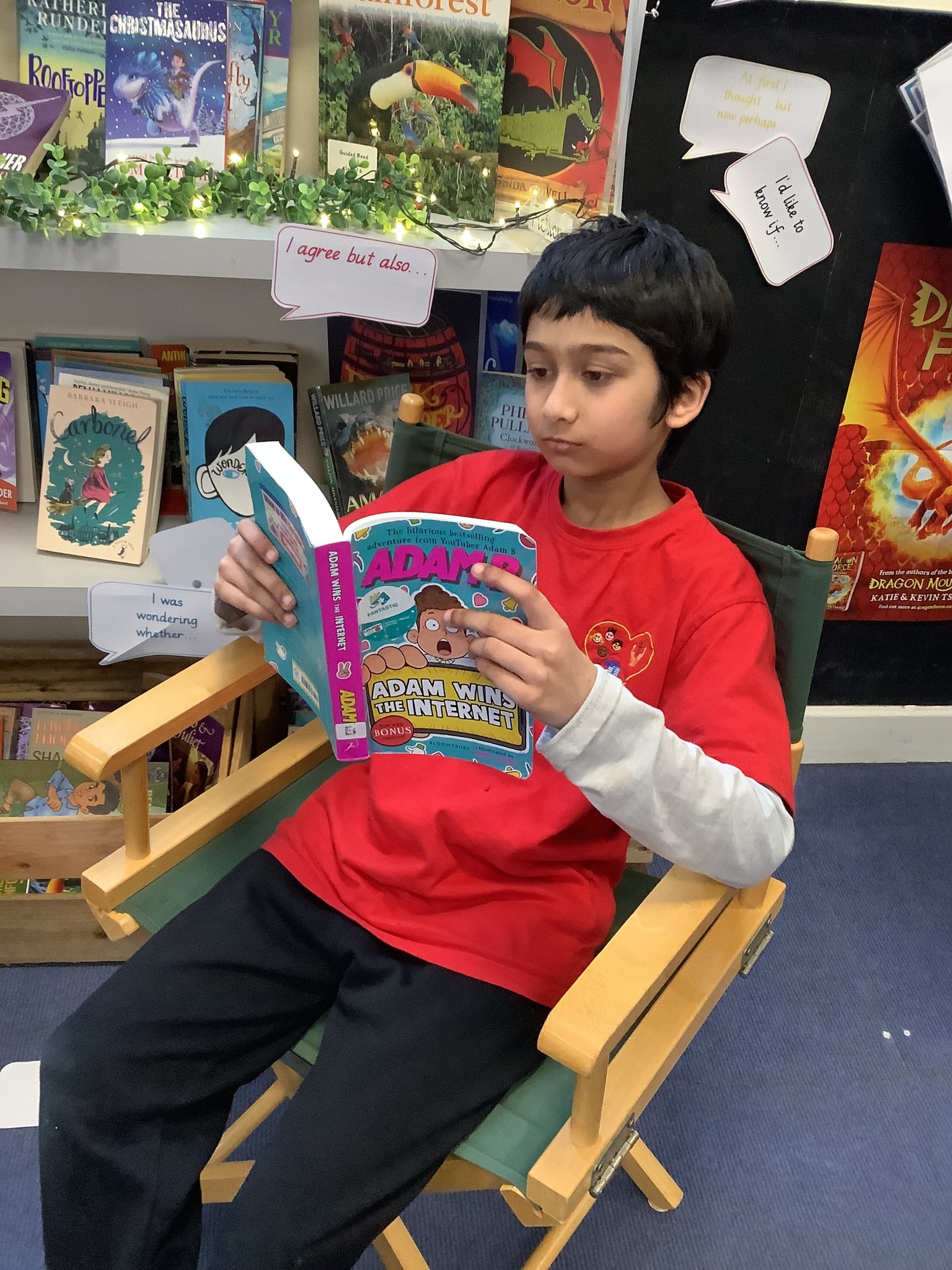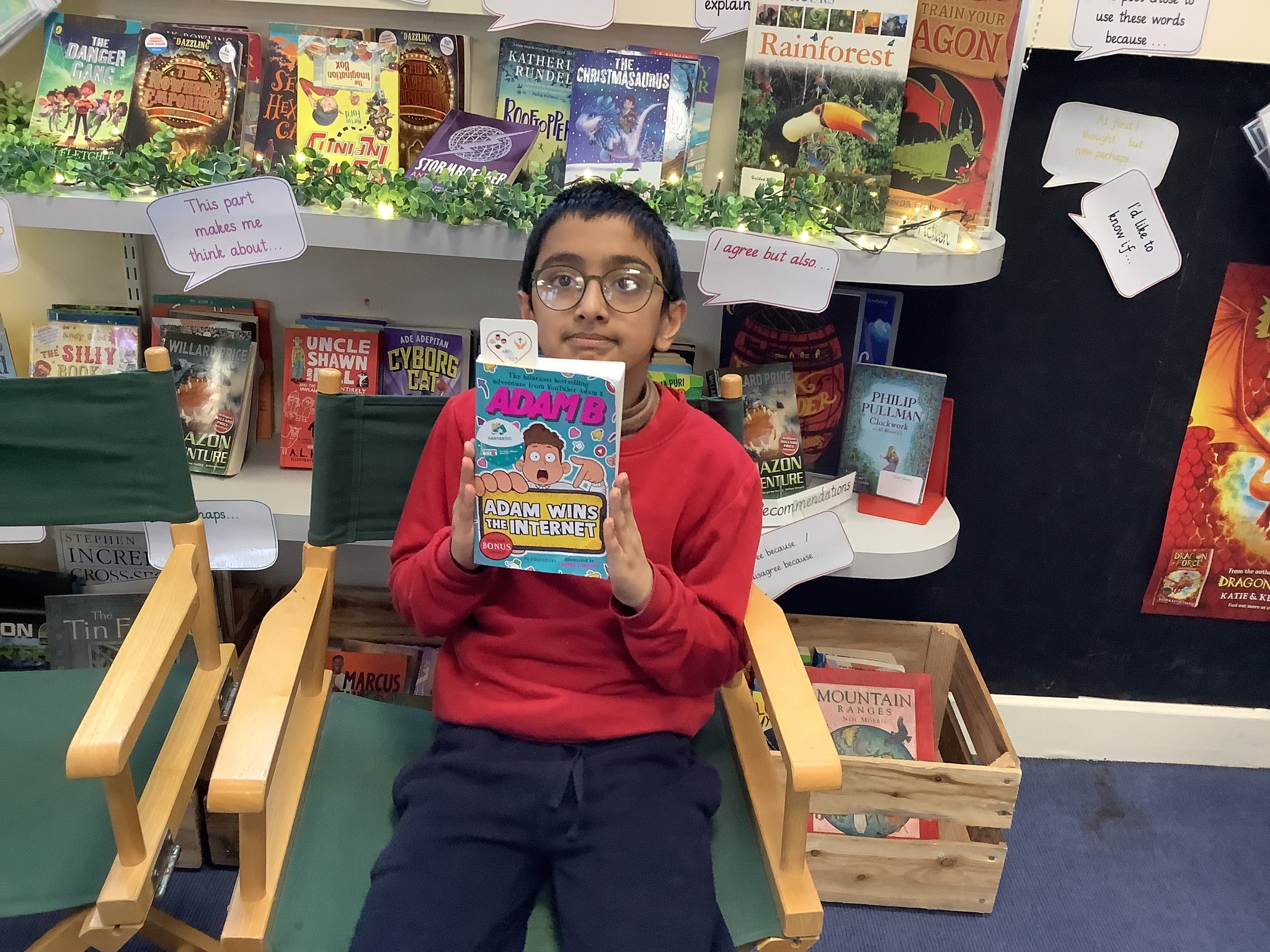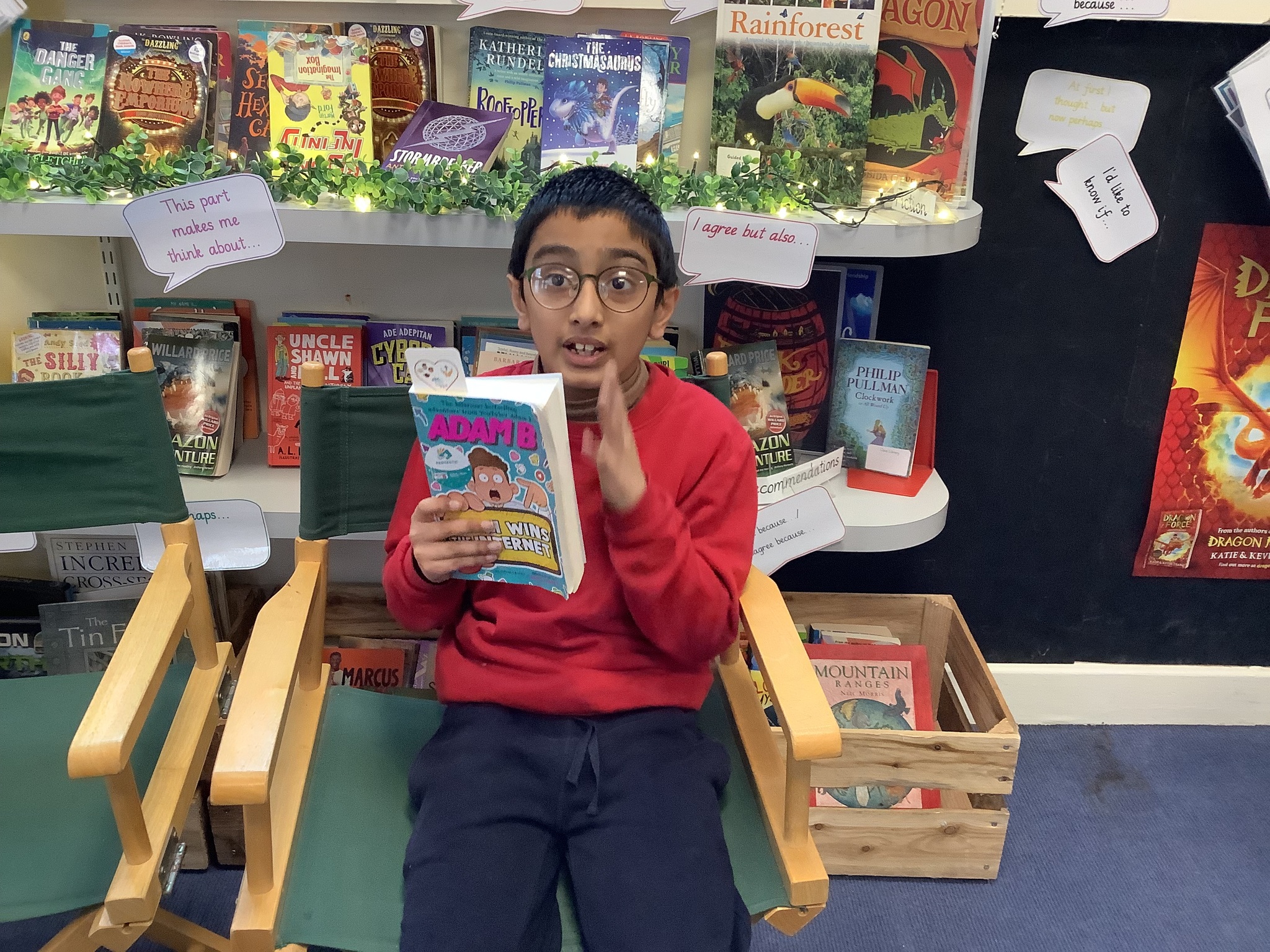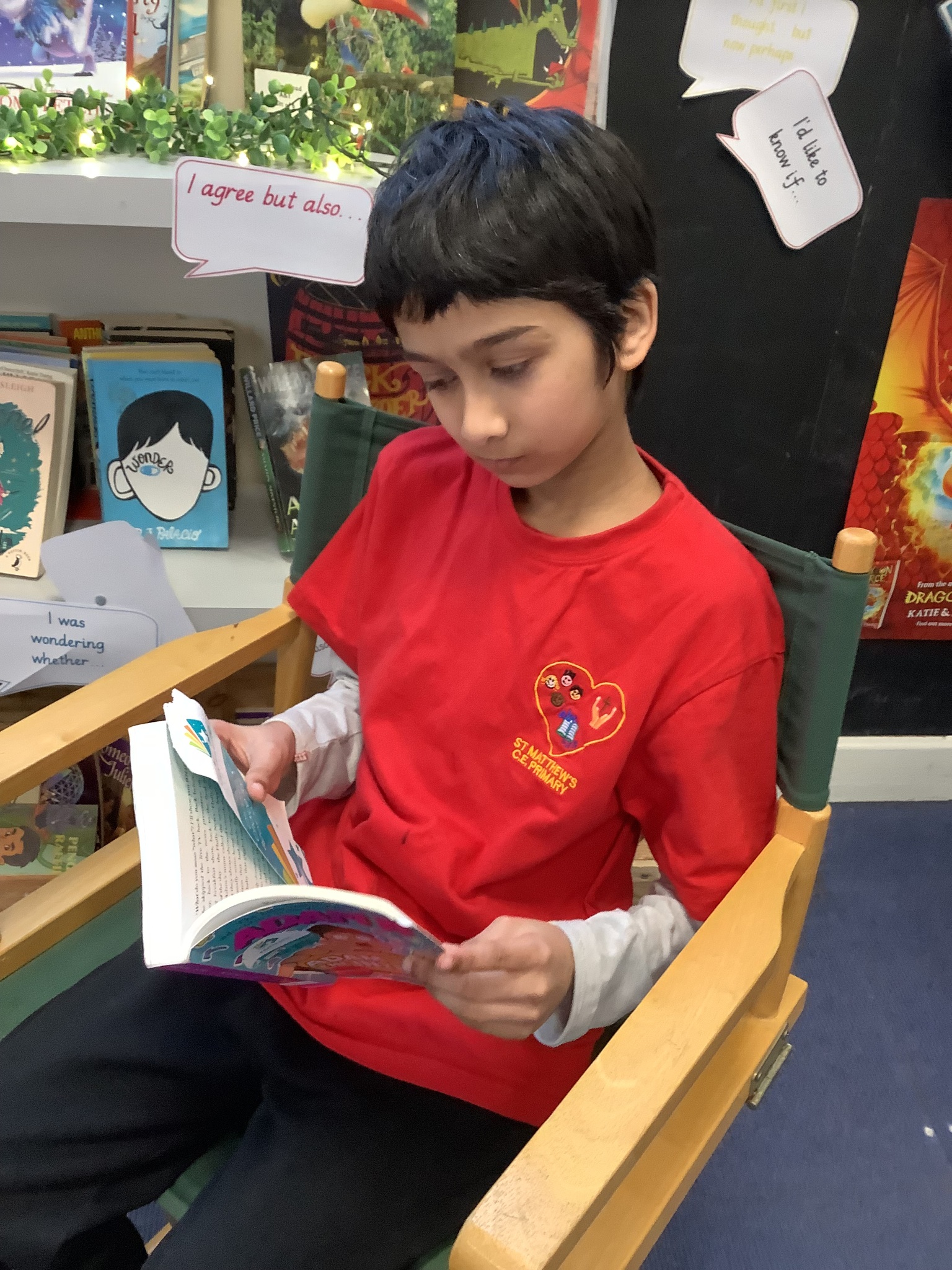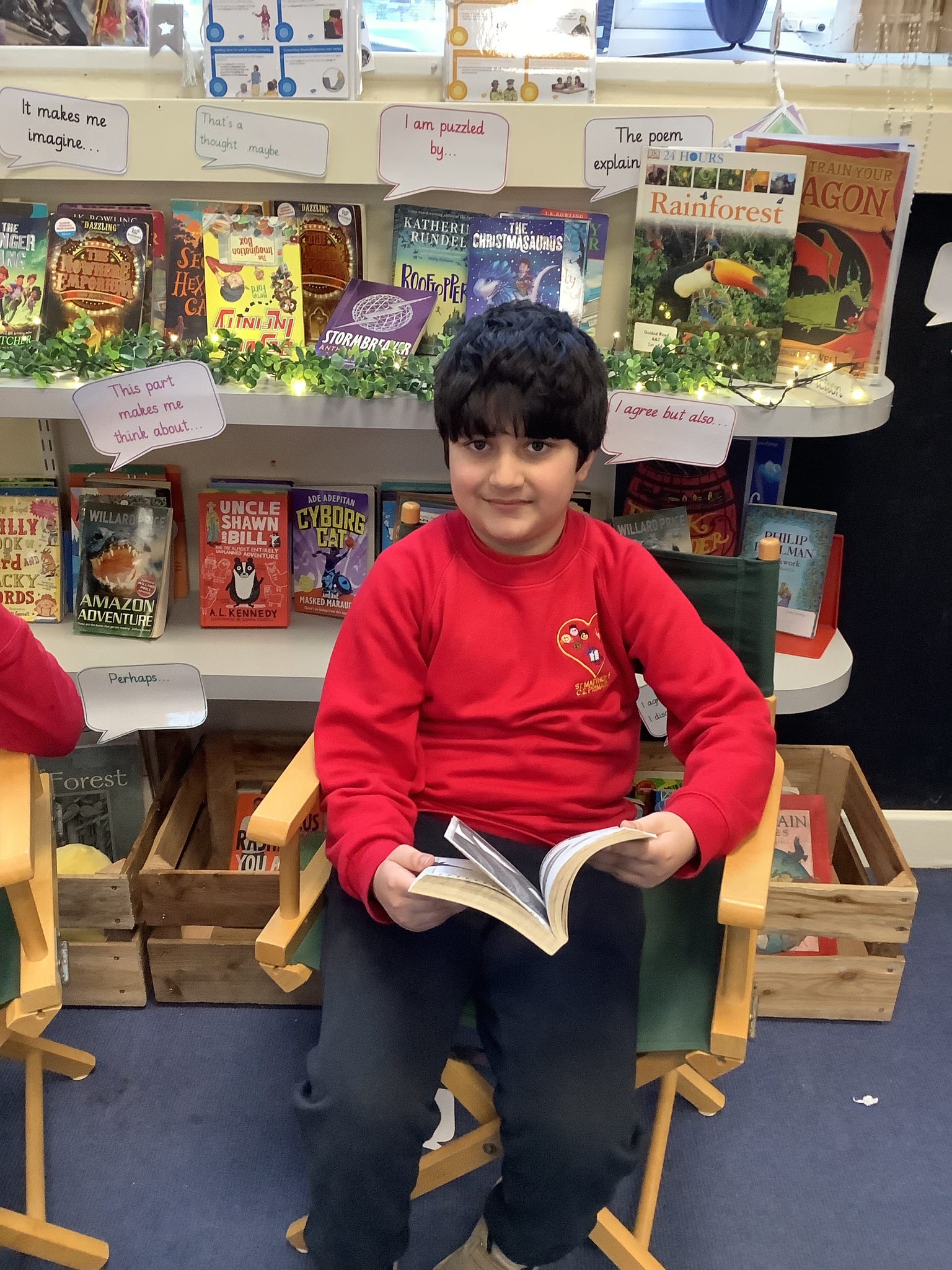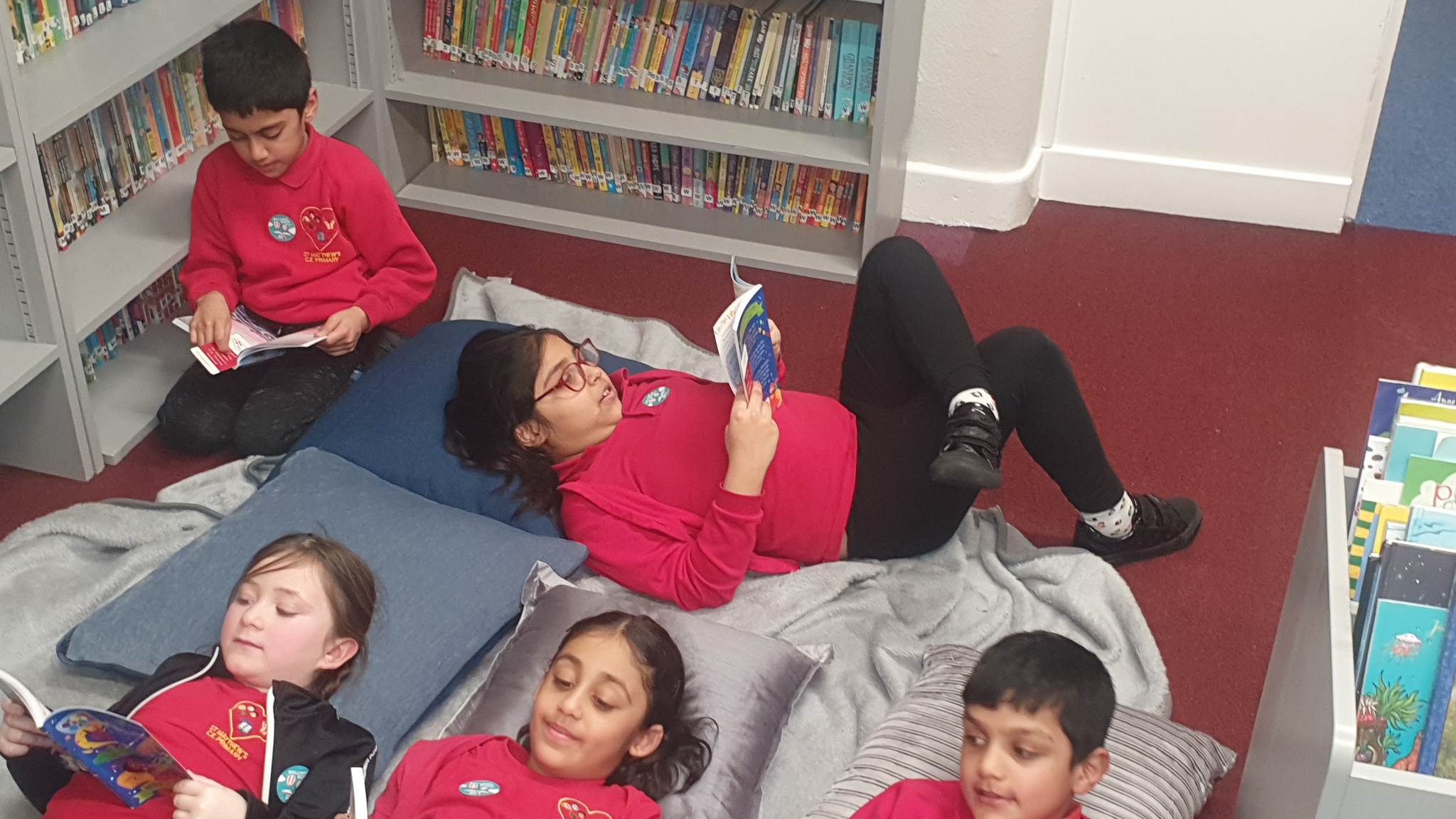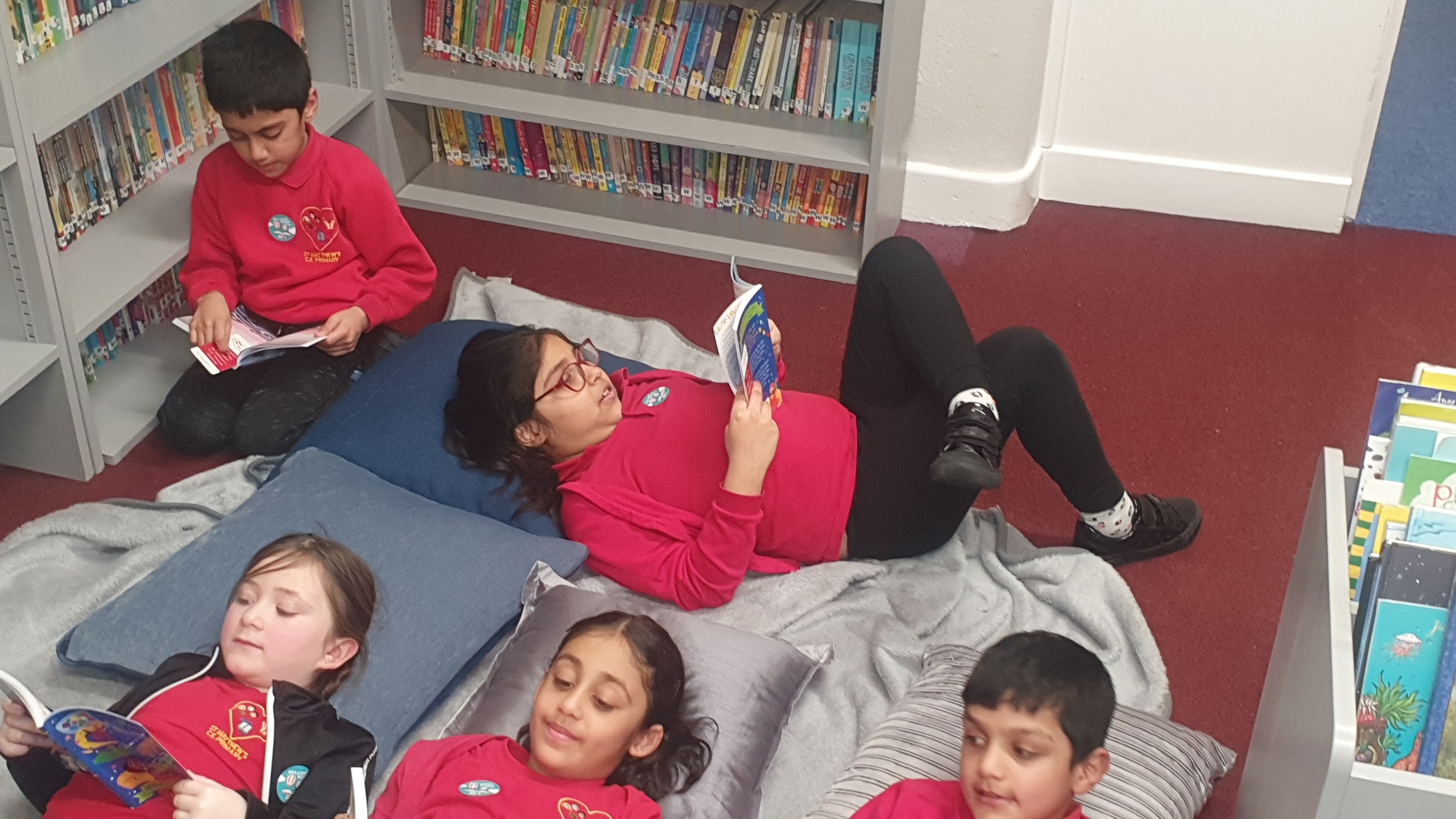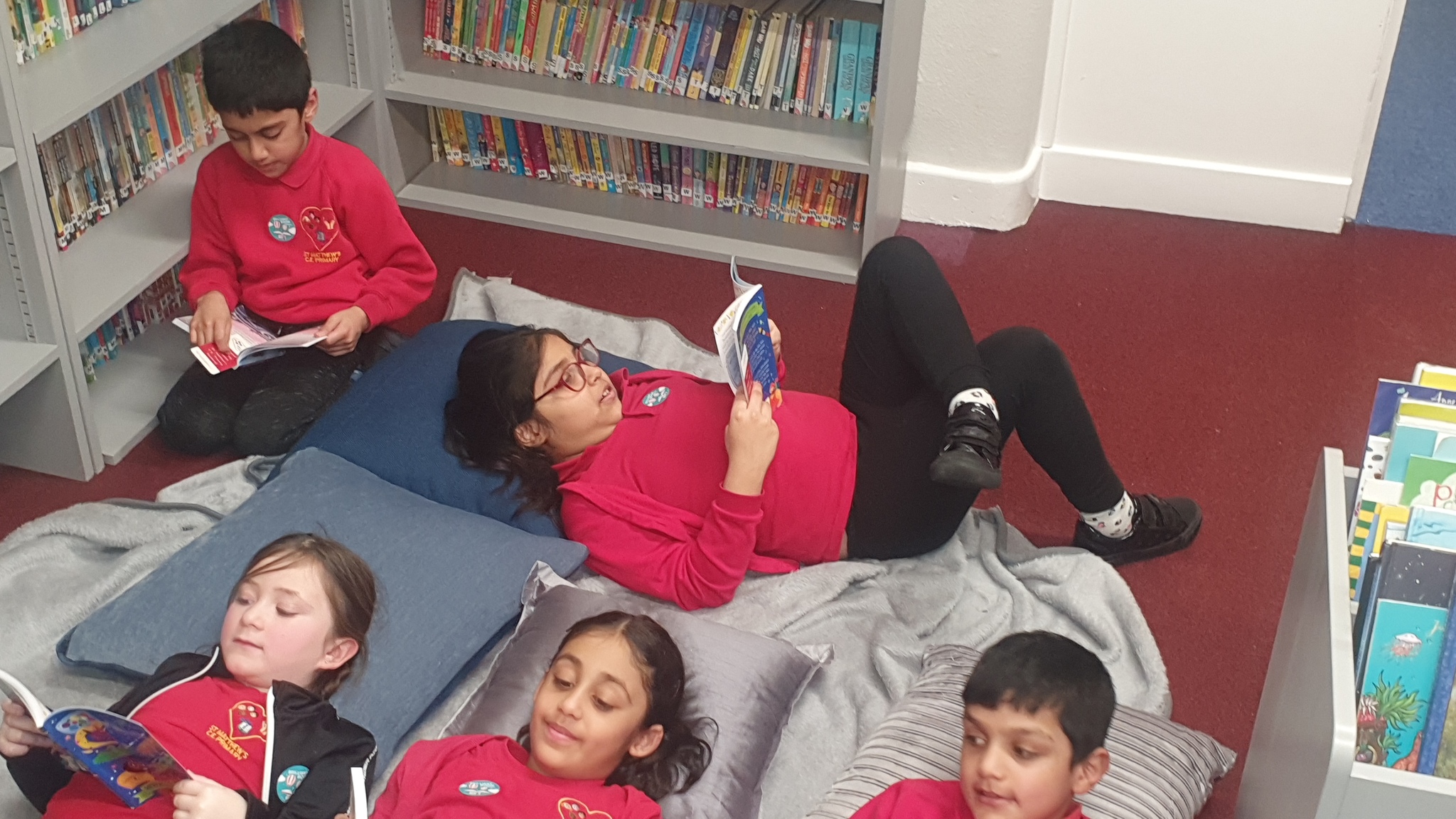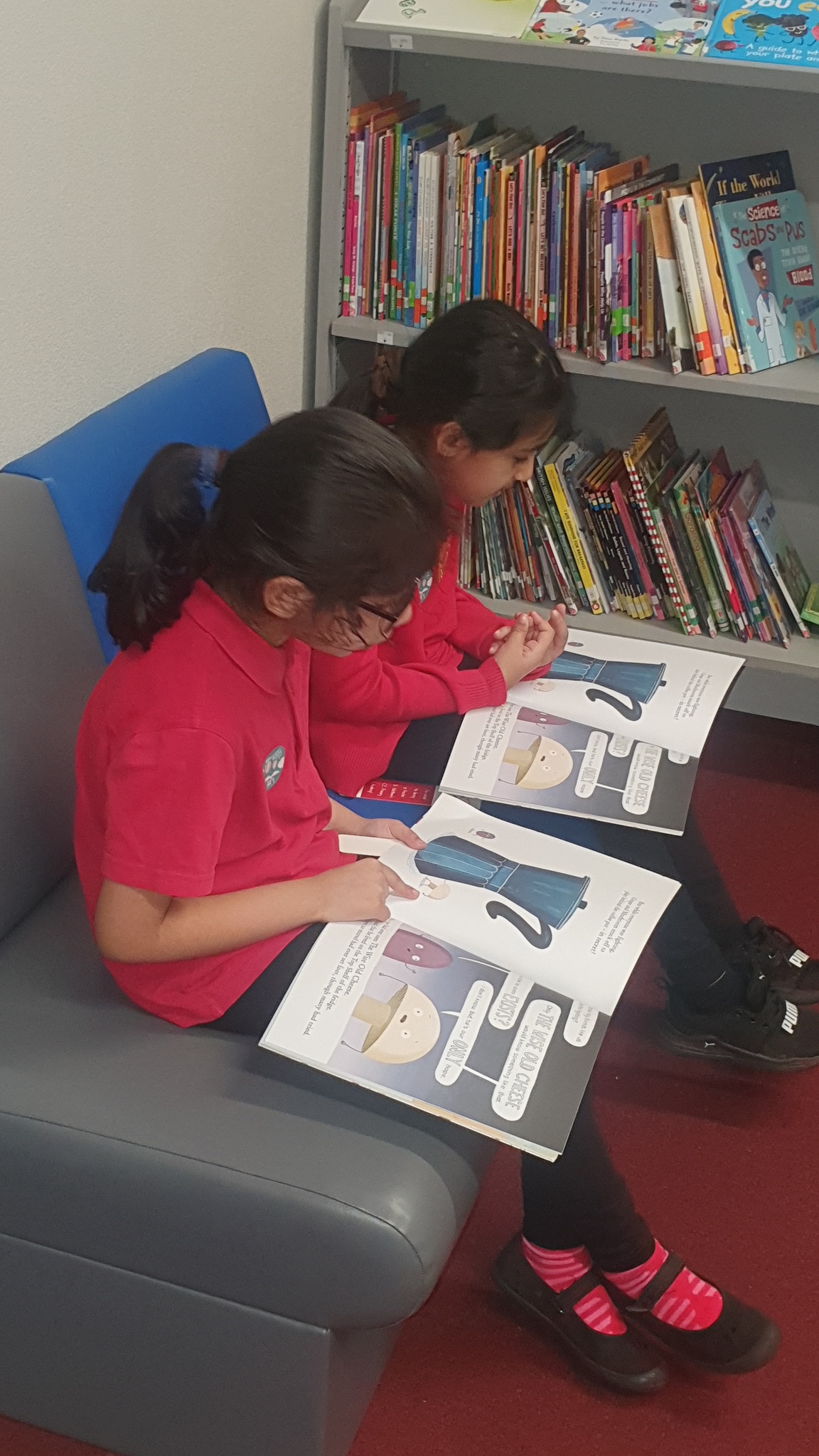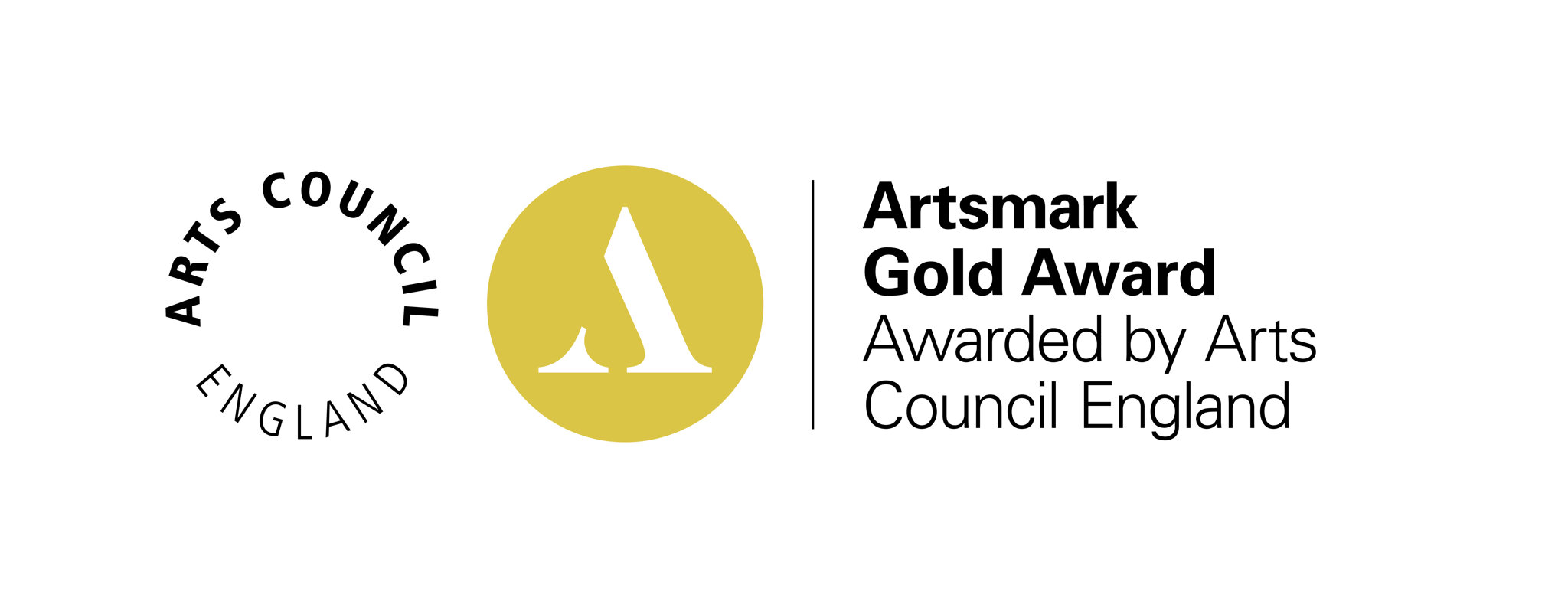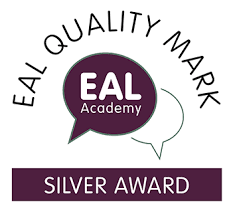Reading at St Matthew’s
At St Matthew’s it is our aim for the children to develop a love of reading as well as recognise the vital role that reading takes in all their learning. It is our vision that every child will leave primary school being able to read fluently and clearly understand and enjoy what they are reading.
When teaching reading, we address two areas, the decoding of words (phonics) and the comprehension of the text.
Throughout school, reading is taught in a variety of ways – through listening to individual readers, guided reading (groups,) shared reading through Literacy lessons (whole class) and through ‘We are Reading time.’
In Reception and Year 1, children read texts based on their phonics learning as part of their daily phonics lesson. In addition to this every child has a decodable reading book matched to our schools SSP, which they take home for further practise.
In Years 2, 3 & 4, the children receive one, more in-depth Guided Reading session with the class teacher each week. These are designed to build fluency and aid understanding and comprehension.
In Year 5 & 6 the children take part in whole class reading sessions. The children take part in daily reading sessions that expose them to a variety of text types ,whilst they are actively engaged in developing their reading strategies, fluency, pace and understanding.
Shared Reading mostly takes place through the ‘Reading Phase’ of a taught Literacy unit, when the whole class study a text or text type as a model for their own writing.
Classes also share a book that is read to them during ‘We are Reading time.’
Class Teachers, LSA’s, SSA’s and parent helpers listen to children read individually in school on a regular basis. Children also have access to the school library each week. Every class has an allocated ‘library slot’. This is an opportunity for the children to choose any book that they wish.
Reading
English Intent, Implementation and Impact
Our English Overviews
Phonics
Phonics Policy
Essential Letters and Sounds
Essential Letters and Sounds (ELS) is our chosen Phonics programme. The aim of ELS is ‘Getting all children to read well, quickly’. It teaches children to read by identifying the phonemes (the smallest unit of sound) and graphemes (the written version of the sound) within words and using these to read words.
Children begin learning Phonics at the very beginning of Reception and it is explicitly taught every day during a dedicated slot on the timetable. Children are given the knowledge and the skills to then apply this independently. Throughout the day, children will use their growing Phonics knowledge to support them in other areas of the curriculum and will have many opportunities to practise their reading. This includes reading 1:1 with a member of staff, with a partner during paired reading and as a class.
Children continue daily Phonics lessons in Year 1 and further through the school to ensure all children become confident, fluent readers. We follow the ELS progression and sequence. This allows our children to practise their existing phonic knowledge whilst building their understanding of the ‘code’ of our language GPCs (Grapheme Phoneme Correspondence). As a result, our children can tackle any unfamiliar words that they might discover.
Children experience the joy of books and language whilst rapidly acquiring the skills they need to become fluent independent readers and writers. ELS teaches relevant, useful and ambitious vocabulary to support each child’s journey to becoming fluent and independent readers. We begin by teaching the single letter sounds before moving to diagraphs ‘sh’ (two letters spelling one sound), trigraphs ‘igh’ (three letters spelling one sound) and quadgraphs ‘eigh’ (four letters spelling one sound).
We teach children to:
• Decode (read) by identifying each sound within a word and blending them together to read fluently
• Encode (write) by segmenting each sound to write words accurately.
The structure of ELS lessons allows children to know what is coming next, what they need to do, and how to achieve success. This makes it easier for children to learn the GPCs we are teaching (the alphabetic code) and how to apply this when reading.
ELS is designed on the principle that children should ‘keep up’ rather than ‘catch up’. Since interventions are delivered within the lesson by the teacher, any child who is struggling with the new knowledge can be immediately targeted with appropriate support. Where further support is required, 1:1 interventions are used where needed. These interventions are short, specific and effective.
Supporting Reading at Home:
• Children will only read books that are entirely decodable, this means that they should be able to read these books as they already know the code contained within the book.
• We only use pure sounds when decoding words (no ‘uh’ after the sound)
• We want children to practise reading their book 4 times across the week working on these skills:
Decode – sounding out and blending to read the word.
Fluency – reading words with less obvious decoding.
Expression – using intonation and expression to bring the text to life!
We must use pure sounds when we are pronouncing the sounds and supporting children in reading words. If we mispronounce these sounds, we will make reading harder for our children. Please watch the videos below for how to accurately pronounce these sounds.
At the beginning of each academic year, we will hold an information session for parents and carers to find out more about what we do for Phonics, Reading and English at our schools. Please do join us.
Grapheme Sheets Phases 2-5
Fantastic Book Awards
At St Matthew’s we take part in the Lancashire Fantastic Book Awards (FBA). It is aimed at children in Key Stage 2 and we have found that the book club inspires reading and provides our children with the opportunity to meet, discuss and share views about their reading in an informal way. The children are given the opportunity to read books they might not have chosen before. The children then vote for one of the five books they consider to be an FBA Winner.
Brilliant Book Awards
In Key Stage 1 we take part in the Brilliant Book Awards (BBA) which is run by Lancashire. The children get the opportunity to share stories, discuss likes and dislikes and complete fun activities. The children are thrilled with the idea of voting for an author at the end.
More support for parents and carers can be found here:
https://home.oxfordowl.co.uk/reading/reading-schemes-oxford-levels/essential-letters-and-sounds/
Schoolreaders recruits, places and supports volunteers in local primary schools to give children one-to-one reading support on a weekly basis, boosting their literacy skills, confidence, and reading fluency. We’re proud to be a partner school, able to provide our pupils with this valuable extra reading time each week!

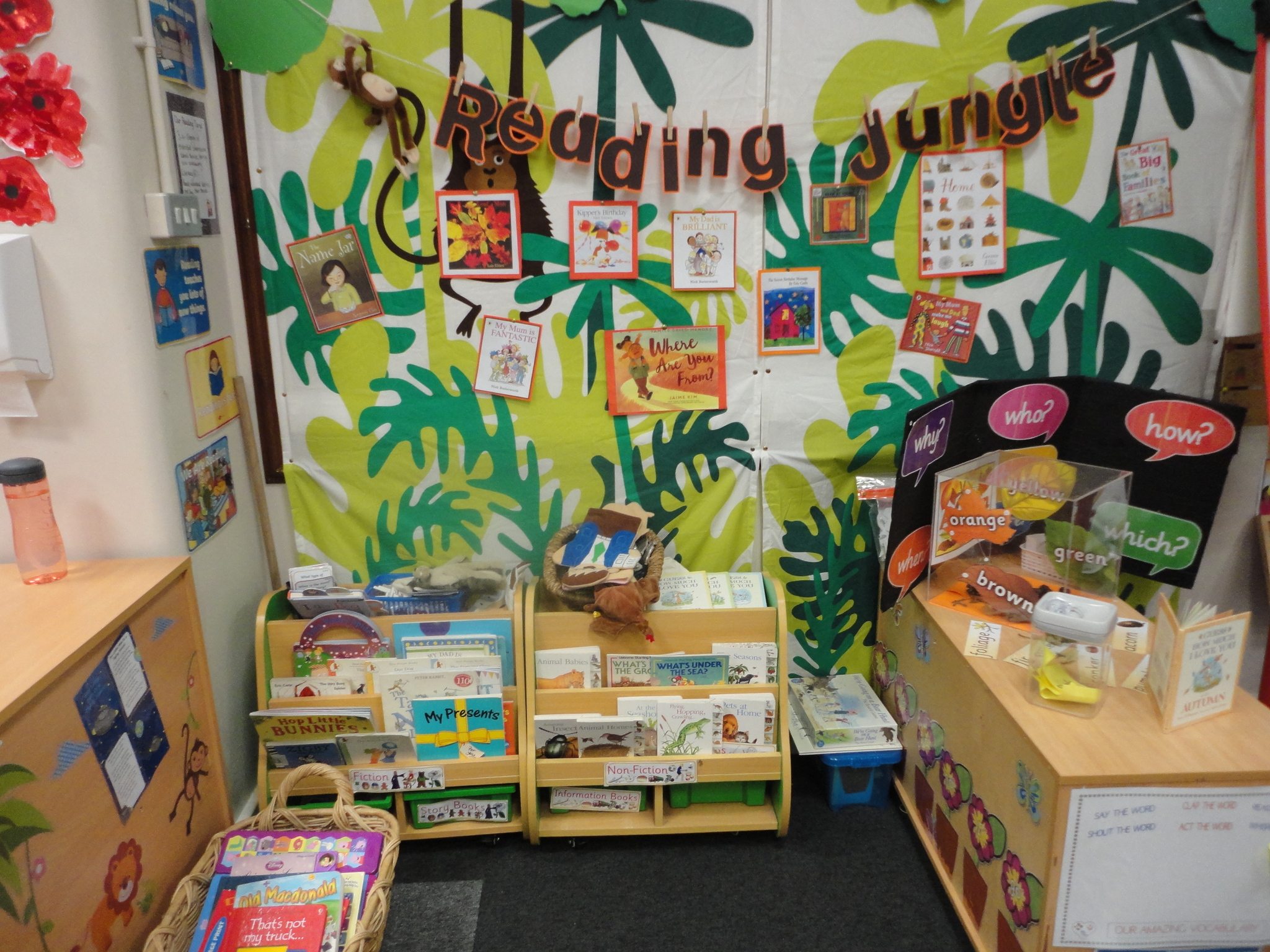
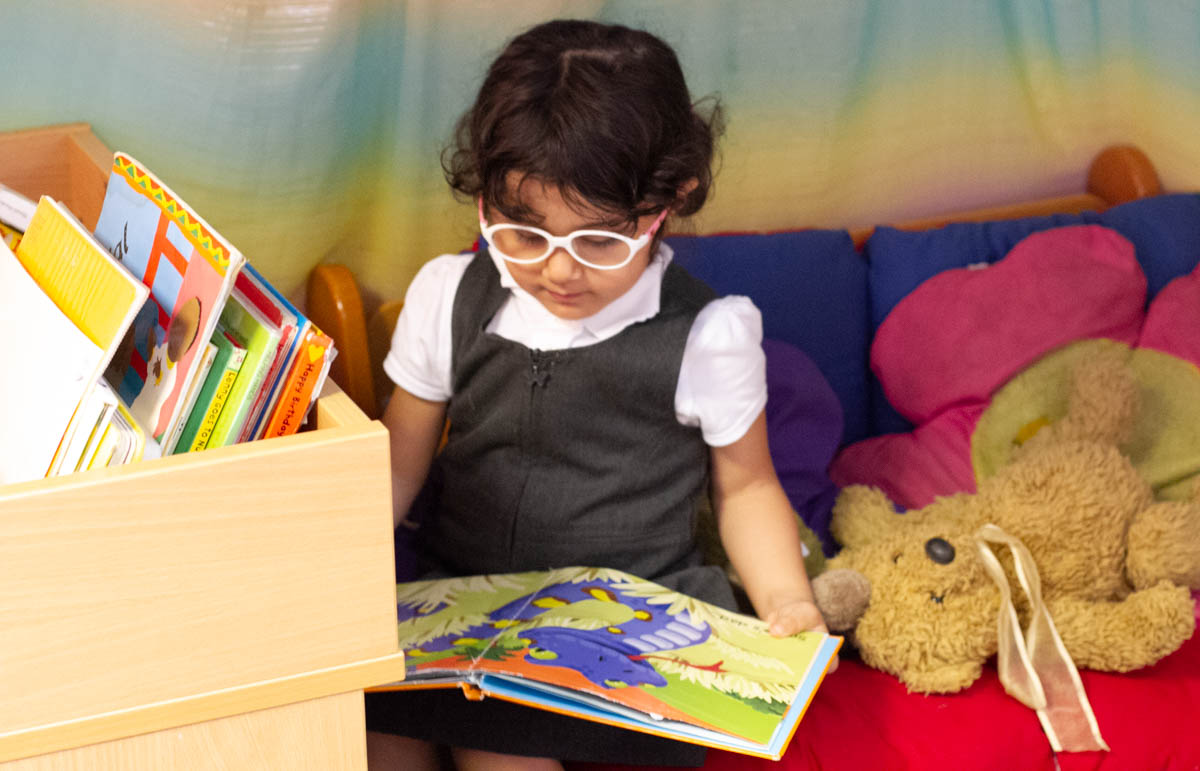
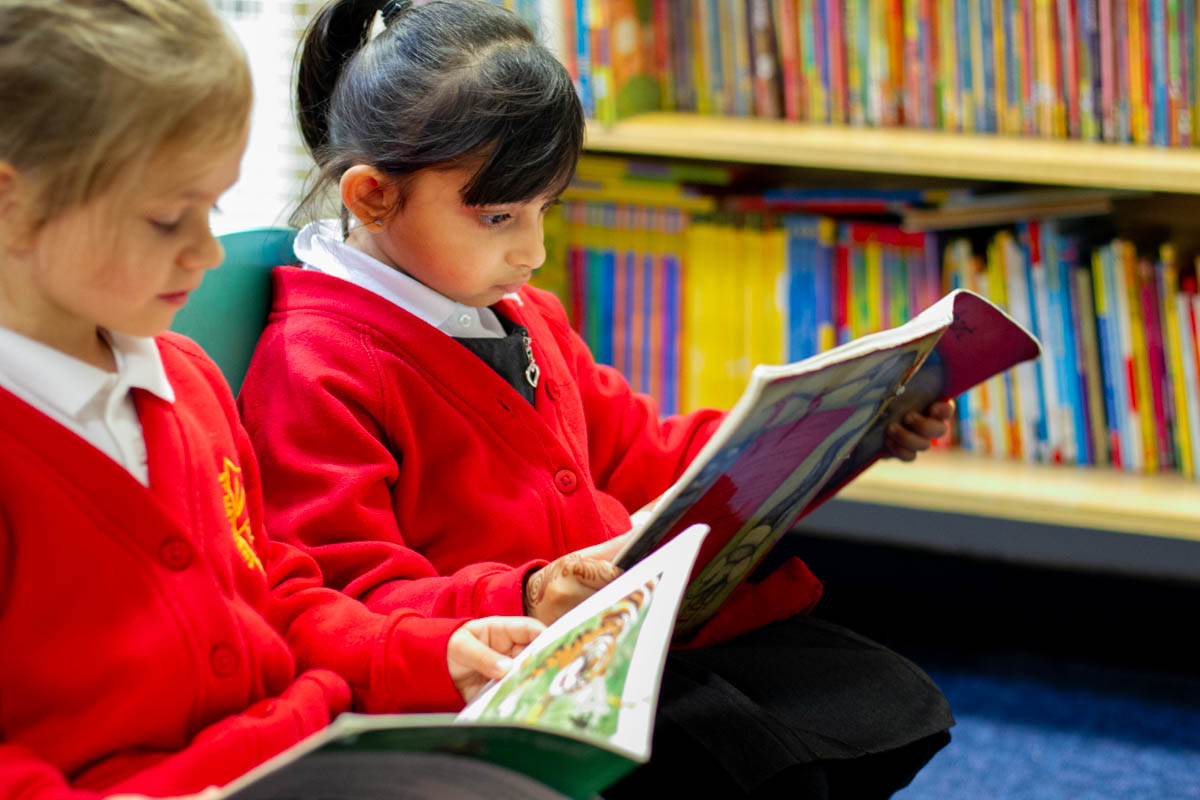
.jpg)
.jpg)
